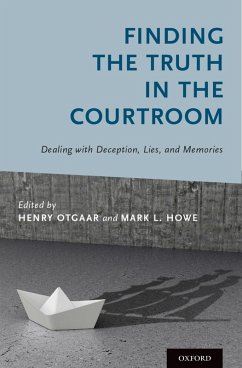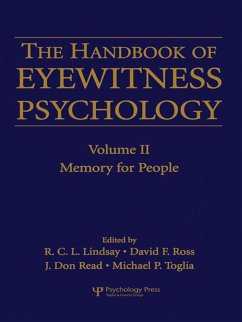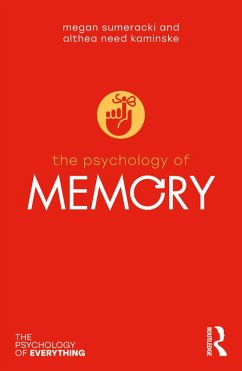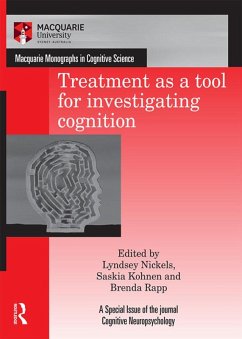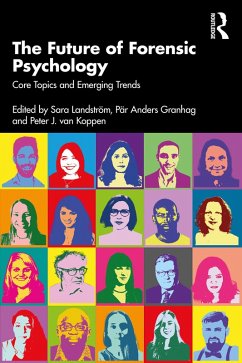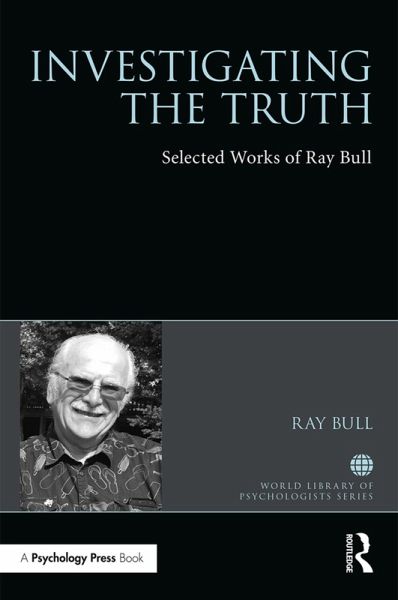
Investigating the Truth (eBook, PDF)
Selected Works of Ray Bull
Versandkostenfrei!
Sofort per Download lieferbar
49,95 €
inkl. MwSt.
Weitere Ausgaben:

PAYBACK Punkte
25 °P sammeln!
In the World Library of Psychologists series, international experts present career-long collections of what they judge to be their finest pieces - extracts from books, key articles, salient research findings, and their major practical theoretical contributions.The Selected Works of Professor Ray Bull include some of the most influential insights into the psychology of investigative interviewing. Whether it has been determining whether a suspect is lying or telling the truth, enabling children to provide reliable testimony, or understanding how the dynamics of the interview process itself can a...
In the World Library of Psychologists series, international experts present career-long collections of what they judge to be their finest pieces - extracts from books, key articles, salient research findings, and their major practical theoretical contributions.
The Selected Works of Professor Ray Bull include some of the most influential insights into the psychology of investigative interviewing. Whether it has been determining whether a suspect is lying or telling the truth, enabling children to provide reliable testimony, or understanding how the dynamics of the interview process itself can affect what is achieved, Professor Bull has been at the forefront in researching this fascinating area of applied psychology for over 40 years, his work informing practice internationally. An elected Honorary Fellow of the British Psychological Society and the first Honorary Life Member of the International Investigative Interviewing Research Group, Professor Bull also drafted parts of the government's Memorandum of Good Practice and of Achieving Best Evidence on Video Recorded Interviews with Child Witnesses for Criminal Proceedings.
Including a specially written introduction in which Professor Bull reflects on a wide-ranging career and contextualises how the field has evolved, this collection will be a valuable resource for students and researchers of forensic psychology.
The Selected Works of Professor Ray Bull include some of the most influential insights into the psychology of investigative interviewing. Whether it has been determining whether a suspect is lying or telling the truth, enabling children to provide reliable testimony, or understanding how the dynamics of the interview process itself can affect what is achieved, Professor Bull has been at the forefront in researching this fascinating area of applied psychology for over 40 years, his work informing practice internationally. An elected Honorary Fellow of the British Psychological Society and the first Honorary Life Member of the International Investigative Interviewing Research Group, Professor Bull also drafted parts of the government's Memorandum of Good Practice and of Achieving Best Evidence on Video Recorded Interviews with Child Witnesses for Criminal Proceedings.
Including a specially written introduction in which Professor Bull reflects on a wide-ranging career and contextualises how the field has evolved, this collection will be a valuable resource for students and researchers of forensic psychology.
Dieser Download kann aus rechtlichen Gründen nur mit Rechnungsadresse in A, B, BG, CY, CZ, D, DK, EW, E, FIN, F, GR, HR, H, IRL, I, LT, L, LR, M, NL, PL, P, R, S, SLO, SK ausgeliefert werden.




